How Exam Results Make Us Feel
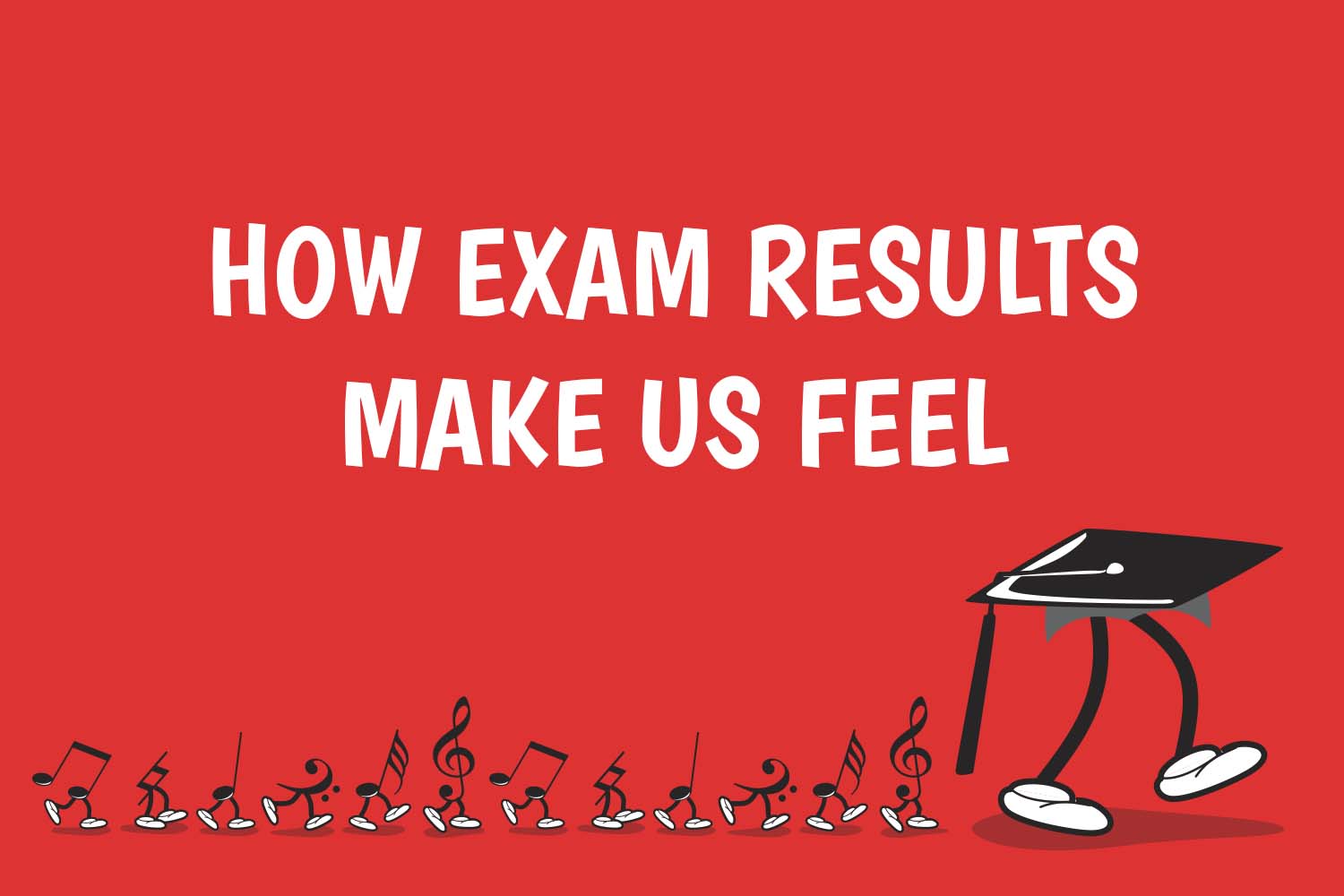
Exam results. Encouraging? Soul-crushing? Well deserved? A definite fluke?
It’s the combination of those that are either brilliant or lethal for us and our sanity. By ‘us’ I mean teachers and students (as I have had the benefit of experiencing piano exams from both of these perspectives!).1
We all know that there’s other things in a student’s life, and that there’s often disconnect between what the parent wants, what the student can do, and what the teacher is willing to support. But every so often, when the stars align, we get the bliss point. Everyone’s desires, schedules, and motivations magically fall into place.
It’s at this point that we should have two scenarios: one with a happy, prepared, excited student who plays brilliantly and gets a good result, and one with an anxious, under-prepared, frustrated student who plays not so well and gets a mark that reflects that. Simple, right? In this world, the student learns that effort equals reward, the parent understands what went well or not well, and the teacher gets to say congrats or I told you so.
And yet, sometimes, a candidate will get a result for their exam that belies the effort and support that went into it. This is where the exam ‘system’ can fall flat on its face, in terms of it being a positive learning experience.
So then, here are four rather simplified outcomes for exam preparation:2
Scenario 1: Deserved a Good Mark, Got a Good Mark
- A pragmatic approach to exam entry from student and parent
- Solid hard work leading right up to exam date
- Exam goes well and a good mark is received
This scenario would look like this, for teacher and student:
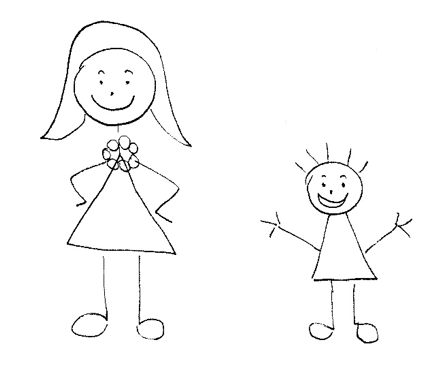
Scenario 2: Deserved a Good Mark, Didn’t Get a Good Mark
- A pragmatic approach to exam entry from student and parent
- Solid hard work leading right up to exam date
- Exam goes well according to student but examiner has other ideas
Now we have a scenario that looks more like this:
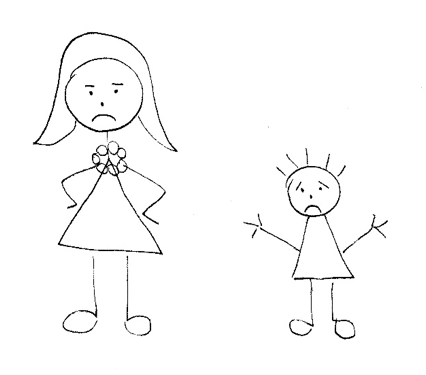
Scenario 3: Didn’t Deserve a Good Mark, Got a Good Mark
- Competitive parent or overzealous student leads to inappropriate exam entry
- Very little work leading up to exam, or last-minute cramming
- Exam somehow goes well
This frustrating scenario results in this:
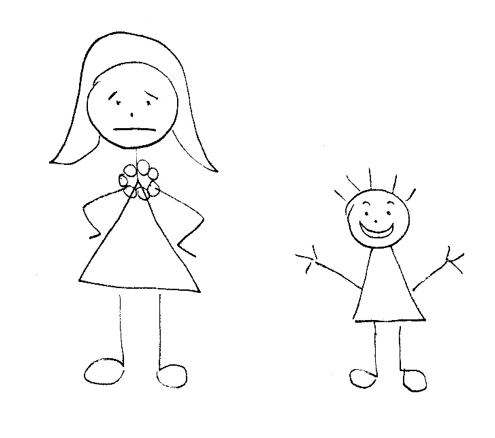
And finally, Scenario 4: Didn’t Deserve a Good Mark, Didn’t Get a Good Mark
- Competitive parent or overzealous student leads to inappropriate exam entry
- Very little work leading up to exam, or last-minute cramming
- Exam is a disaster, as predicted
For teacher and student, this situation can look like this:
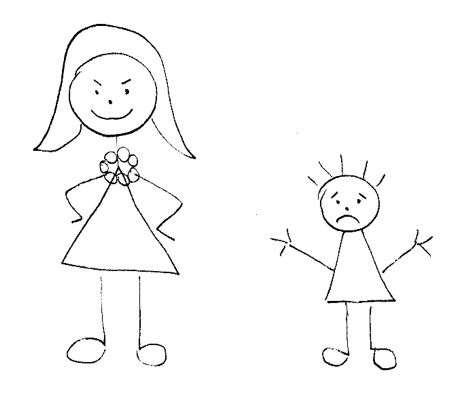
A quick explanation of these rather amateur illustrations 3
- In Scenario 1, both teacher and student are very happy, and deservedly so.
- In Scenario 2, the teacher is a bit bewildered and fairly disappointed, but knows the system has its flaws. The student is simply upset and doesn’t understand.
- In Scenario 3, we have the teacher feeling thwarted in every sense. The stress of cramming has taken its toll yet no lesson has been learned. The student, on the other hand, is delighted.
- In Scenario 4, the teacher has a bittersweet satisfaction that an appropriate mark was given and hopes the student has learned a life lesson. The student is disappointed and cannot see past the ‘bad’ result.
Here are all four scenarios:
| Deserved a Good Result | Did Not Deserve a Good Result | |
| Got a Good Result |  |
 |
| Did Not Get a Good Result |  |
 |
I have had experience with all four. I’m happy to report that most of the time, myself and my students end up with our lovely Scenario 1. But Scenario 2 has reared its ugly head from time to time. And as for the other two, I’ve had plenty of experience with those and many subtle variations too! The real question, however, I put to you: which helps the student more – getting a good result, or getting the result they deserve?
I would love to hear about your experiences. Please comment below!
- I’ve had the perspective of parent too. Although parents are certainly involved, I feel strongly that the parents’ reactions to exam marks should not factor in too much; when they do, well, that’s a whole other blog post.
- Of course, there are thousands of possible scenarios, as emotions run on a spectrum and are not black and white like these cartoons.
- After all, I’m a piano teacher.

Really liked your article and the cute pictures! Rather oddly, considering I am a pro musician, I am rubbish at drawing and you’re better than me probably 🙂
Regarding the serious stuff, scenario 4 is a tough one. I’m normally satisfied with every exam result on one condition: that the student gets the mark they deserve. What I am currently aware of is students (especially inexperienced adult students) who get way too nervous during the exam, and thwart their own chances of doing themselves justice.
I’m also happy when my advice is taken regarding the question of whether to enter the exam, or to wait for the next diet to come round. When my advice is not taken and the student enters prematurely, it’s normally reflected in a bare pass mark rather than a merit or a distinction.
Another blog post could easily be done on how to integrate exams into the student’s music curriculum, and the connected point of explaining to parents that the exams, whilst important, are not the sole or even the main reason for us teaching (and their children learning) music.
Hi Samantha! I find scenario 2 definitely the hardest, and one that has cropped up more frequently recently. It’s almost as if the examiners have been told not to give out A+s anymore except to someone who plays like Yuja Wang. I think in this scenario I as teacher have to take the responsibility for the lower-than-hoped-for result, though the (talented!) student has absolutely busted a gut to get an A+ rather than a plain old A. It’s disheartening and frustrating for us all, a lesson in resilience and persistence, but when you know a student is really, really good and the Holy Grail remains out of reach, well…the result is a less-than-encouraging one.
Agree Tania. I tend to advise my students that and A+ is off the table, they shouldn’t even think about it, they should be delighted with anything higher than a B and we’re not going to get fixated on it.
I fully agree with what Tania(August 15,2017)had to say. There seems to be some unevenness in the marking system and depends on the Examiner. I have had brilliant reports and wondered why an A+ was not awarded. In my heart I know what these students are capable and what they deserve. So we keep marching along!
Hi Ruki you are right we do need to keep marching along! I have also been bewildered by results from time to time. A+’s are rare and erratically awarded.
Hi Samantha, thanks for the great perspective on exams. I wonder if it might be a good idea to add a Scenario 5 – that being the student who IS well prepared, who demonstrates skill and confidence in the lessons, who can rhyme off any musicianship questions that may well crop up in the exam and who is generally accurate with the technical, aural and sight reading components etc… BUT… on the day, is crippled by nerves and gets a mark well below potential. The teacher is bewildered and the student wonders how to get over feeling anxious about future exams. (Any advice on this subject will be much appreciated!)
That certainly is a tricky one and there could be many more scenarios based on performance anxiety! The only answer is to practice being in pressure situations. My advice would be there’s no point in doing exams if crippled by nerves… it’s such a negative experience. Best to arrange concerts and performances and other ways to get used to the nerves, before entering for an exam.
I have just experienced Scenario 4 – a high school boy who is Soccer crazy. He is a “last ditch” practiser (is that a word?) and is ecstatic at passing (he received a C+). I didn’t even expect a Pass! The frustrating thing is, he is very musical and with a little more work (mainly in the technical section), he is capable of a much better mark.
That’s interesting Barbara, so are you saying he got a better mark than he deserved? If he is very musical and did some last minute practice, I think an examiner would pick that up and not want to fail him.
Excellent Blog!The scenarios are so explicitly mentioned about the exam result feel.Thanks for the lovely share.